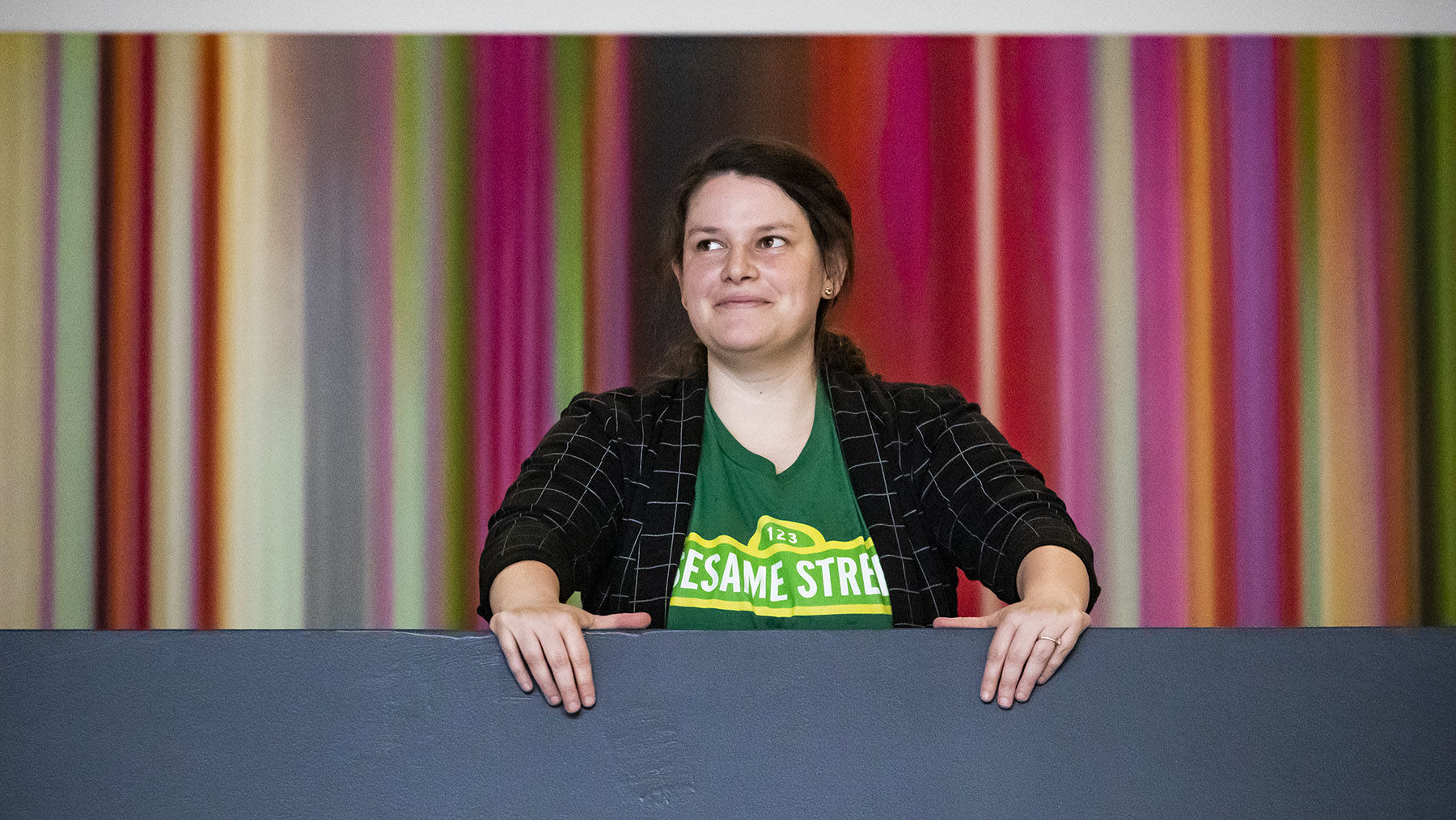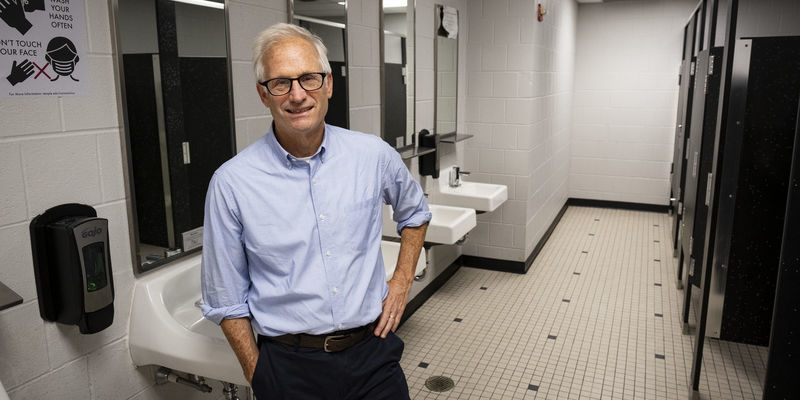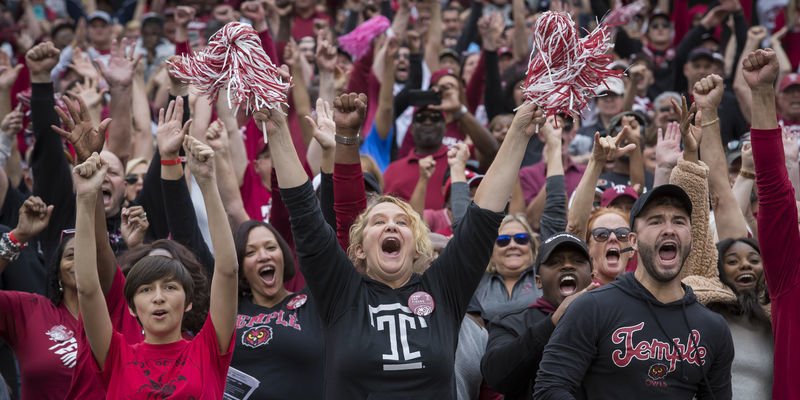Introducing Temple’s ‘Sesame Street’ scholar
History PhD student Abby Whitaker has spent the last several years studying Sesame Street. Last week, she defended her dissertation, “Sesame Street and the Making of Fuzzy Liberalism,” before the Temple University Graduate Board.

Abby Whitaker might not be able to tell you how to get to Sesame Street, but she can tell you just about anything else that you need to know about the iconic children’s television program.
Whitaker is a PhD student within Temple University’s Department of History, and she has spent the last several years proving that her Sesame Street scholarship is up to task.
“I always had this nagging idea that Sesame Street tells us something about American culture or American values,” Whitaker said. “So, coming into graduate school, I knew I wanted to pursue a dissertation on this topic, and it was my advisor, Bryant Simon, who helped me realize that what I was really talking about was politics.”
Last week, Whitaker defended her dissertation, “Sesame Street and the Making of Fuzzy Liberalism,” before the Temple University Graduate Board. Her research for the dissertation focuses on a moment of political transformation coming out of the 1960s, when liberal politics was losing its appeal and conservatism was ascending. But in that moment, what happened to American liberalism? Whitaker has been able to find the answer to that through Sesame Street.
Her dissertation is not a historic retelling of Sesame Street. Rather, it analyzes the Sesame Workshop, the nonprofit organization behind Sesame Street, to better understand the ideas and politics that have informed the domestic version of Sesame Street.
“When this show premiered, the creators of Sesame Street were thinking about things like: what role should the government play in social reform, education, and taking care of people? What does that look like?” Whitaker said. “How do we contend with the Civil Rights Movement, the feminist movement and the gay rights movement? How can we be inclusive? Also, how do we sustain funding for education when federal funding is declining? In a lot of ways, this show crafted a vision for what liberalism is moving forward, which is what led me to this idea of ‘fuzzy liberalism.’”
Within her research, Whitaker tackles a breadth of topics related to the show. She recalls how shortly after Sesame Street’s premiere in 1969, it introduced an African American Muppet named Roosevelt Franklin.
From a historical perspective, this was an achievement in children’s television, and it aligns with the show’s legacy of providing an inclusive platform for all. Yet, fast forward a few years later, and Roosevelt Franklin was abruptly removed from the cast. The show has a done a good job with celebrating diversity, but as Whitaker’s dissertation shows, it has not always been perfect.
“These moments that might feel antithetical to Sesame Street’s brand, like the removal of Roosevelt Franklin, are moments where I see the formation of fuzzy liberalism,” Whitaker said. “What I hope my work shows is that the compromises, contradictions and tensions produced by the show are not just about Muppets, but about a broader liberal politics.”
Whitaker’s research analyzes Sesame Street from its beginnings all the way until it moved from PBS to HBO in 2015. The 359-page dissertation includes chapters on everything from what it means that the show was set in the city to how the show handles its depictions of race.
As Whitaker worked toward completing her dissertation, she also found that Sesame Street frequently finds itself in the news. Journalists are often looking for an expert to offer context, and they now have the perfect Sesame Street scholar to do just that.
When Sesame Place, the amusement park that is owned and operated by United Parks and Resorts under an exclusive license from Sesame Workshop, found itself in the news for all the wrong reasons, Whitaker was authoring an op-ed within the Washington Post that helped explain what happened. It is one of five op-eds that Whitaker has written for the newspaper.
Last month, when Cookie Monster was complaining about shrinkflation regarding the size of cookies, Whitaker was chatting with CNN and the Post about why adults should take the furry monster’s concerns seriously.
While her dissertation is now complete, Whitaker’s interest in Sesame Street won’t soon be waning. This fall, she will continue her Sesame Street scholarship as a tenure-track assistant professor in U.S. history position at Brevard College in Brevard, North Carolina. As the mother of a 4-month-old, she also now has a whole new reason to watch the program.
“That’s something I’m really interested in, watching it now as a parent,” Whitaker said. “I am really eager to see how that will inform the way I think and look at the show because I’m definitely going to watch it with her.”


